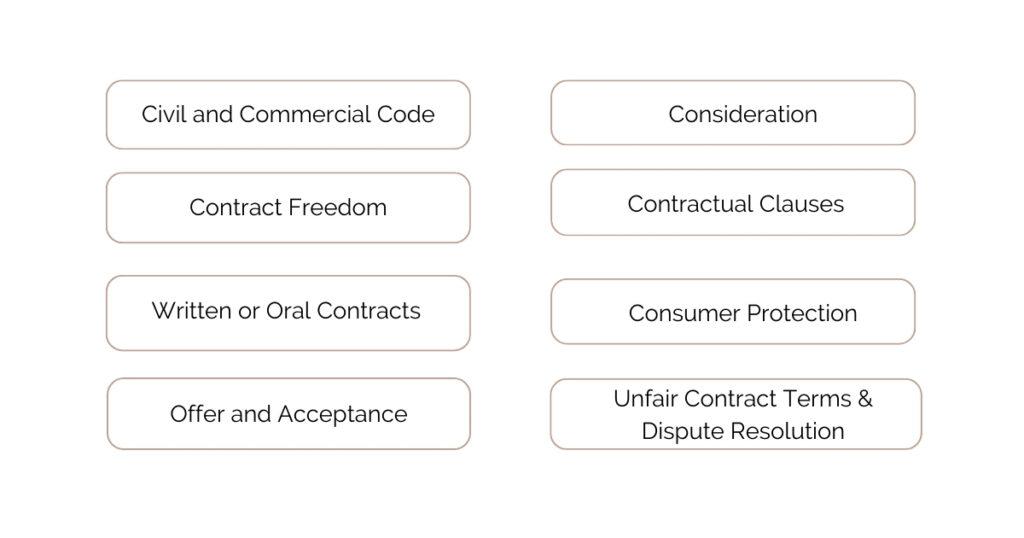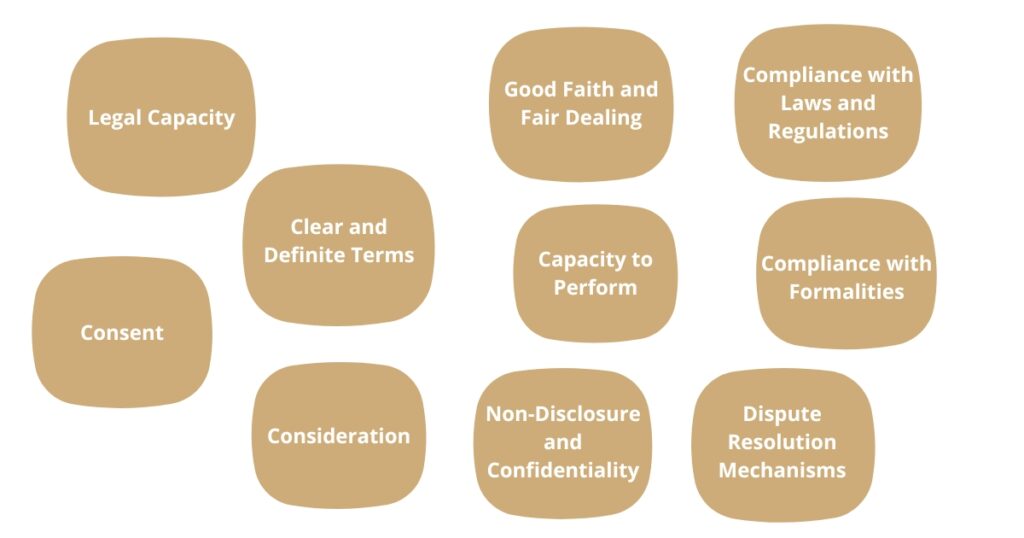Call us now:

Contract negotiation in Thailand.
Contract negotiation in Thailand requires finesse to secure suitable terms for both parties.
For multinationals and sole proprietors who seek to participate in Thailand’s commerce, understanding the subtle ways in which deals develop proves pivotal.
Businesses based overseas must approach negotiations with sensitivity to cultural norms and openness to diverse viewpoints to build relationships that foster mutual prosperity over the long term. Whether they negotiate specific terms or build trust over time, they should engage in tactful discussions that respect Thailand’s unique cultural context to ensure successful and cooperative ventures.
At Benoit & Partners, we advise local and international clients on real estate law in Thailand. Our team provides legal guidance on property ownership structures, due diligence, land title verification, and transaction procedures under Thai law. We assist buyers and investors in securing compliant and legally sound property acquisitions within Thailand’s regulatory framework.
Table of Contents
How do you negotiate a contract ?
Contract negotiation in Thailand necessitates tact and cultural awareness. Here are some strategies for effectively bargaining deals in Thailand:
Build Trust: Establish personal relationships and comfort as a priority in Thai business culture. Spend time getting to know potential partners, engage in casual conversation, and show genuine interest in their background and experiences.
Conduct Thorough Research: Investigate the company or individual thoroughly before negotiations. Understand their practices, values, and social norms that may influence the bargaining process.
Engage Local Expertise: Collaborate with a local advisor, interpreter, or legal counsel who understands Thai business customs and contract law.
Plan Ahead: Define your objectives, priorities, and non-negotiable terms before discussions begin. Prepare to explain and justify your positions based on objective factors. Anticipate possible objections from the other party and develop persuasive responses.
Maintain Courteous and Indirect Communication: Communicate in a polite and non-confrontational manner, as Thai business culture favors indirect communication.
Demonstrate Patience and Flexibility: Allow sufficient time for negotiations, as the process may move slowly. Avoid rushing discussions and remain flexible when exploring compromises or alternative solutions. Stay open to mutually beneficial outcomes to build credibility and facilitate agreement.
Comply with Local Laws and Regulations: Learn the fundamentals of Thai contract law to ensure compliance and reduce legal risks. Consult a negotiation lawyer to draft agreements that meet Thai legal requirements and include appropriate clauses for dispute resolution, intellectual property protection, and other relevant matters.
Seek Win-Win Outcomes: Focus on solutions that benefit all parties, as Thai business culture values mutually advantageous results. Emphasize long-term cooperation rather than short-term gains.
Document the Agreement: Record the final agreement clearly in a written contract. Ask legal counsel to review the document, confirm that it reflects the negotiated terms accurately.
What are the regulations ?
The regulations encompassing contract negotiation in Thailand are subject to unique regulations and authorized considerations. While consulting a negotiation legal expert for exact advice is advisable, here are some general guidelines involving contract negotiation in Thailand :

Get expert legal guidance.
What law applies ?
The primary law regulating contract negotiation in Thailand and formation is the Civil and Commercial Code.
This statute establishes Thailand’s overarching framework for creating and enforcing agreements. Unless specific industries fall under separate regulation, the Civil and Commercial Code governs the general principles of contracts, including interpretation, performance, breach, and available remedies.
Parties must also consider sector-specific statutes when applicable. For example, the Land Code or the Condominium Act governs property transactions and sets out tailored rules. Similarly, legislation such as the Financial Institutions Act regulates financial service contracts.
The Consumer Protection Act provides additional safeguards for consumer transactions by imposing obligations on businesses and granting rights to consumers.
In some cases, parties choose the governing law through a choice-of-law provision. Drafting such a clause requires careful attention and often professional advice to ensure its validity and enforceability.
What are the requirements ?
Several crucial elements must be addressed to ensure a smooth and legally contract negotiation in Thailand :

Conclusion
Contract negotiation in Thailand is not solely a legal exercise. it is a strategic process that combines legal knowledge, cultural awareness, and relationship-building. While the Civil and Commercial Code provides the fundamental legal framework for agreements, successful negotiations often depend on understanding local business customs, communication styles, and the importance of mutual trust.
Foreign investors and businesses entering the Thai market must approach negotiations with preparation, patience, and flexibility. Ensuring compliance with applicable laws, engaging experienced local advisors, and clearly documenting agreed terms are essential steps to minimize risk and safeguard commercial interests.
By combining sound legal structuring with culturally informed negotiation practices, businesses can establish durable partnerships and secure agreements that support long-term success in Thailand’s dynamic commercial environment.
If you need further information, you may schedule an appointment with one of our lawyers.
FAQ
The primary law governing contract formation and enforcement in Thailand is the Civil and Commercial Code. It establishes the general principles relating to offer and acceptance, performance, breach, interpretation, and remedies.
Yes. Certain industries are regulated by specific laws, such as the Land Code and Condominium Act (real estate), the Financial Institutions Act (financial services), and the Consumer Protection Act (consumer transactions).
Yes. Thai business culture emphasizes relationship-building, politeness, indirect communication, and long-term cooperation. Cultural awareness plays a key role in successful negotiations.
Building trust and personal rapport is essential. Establishing comfort and mutual respect often precedes detailed commercial discussions and contributes to long-term partnerships.
Yes. Engaging local legal counsel or advisors familiar with Thai contract law and business customs helps ensure compliance, mitigate risks, and draft enforceable agreements.
